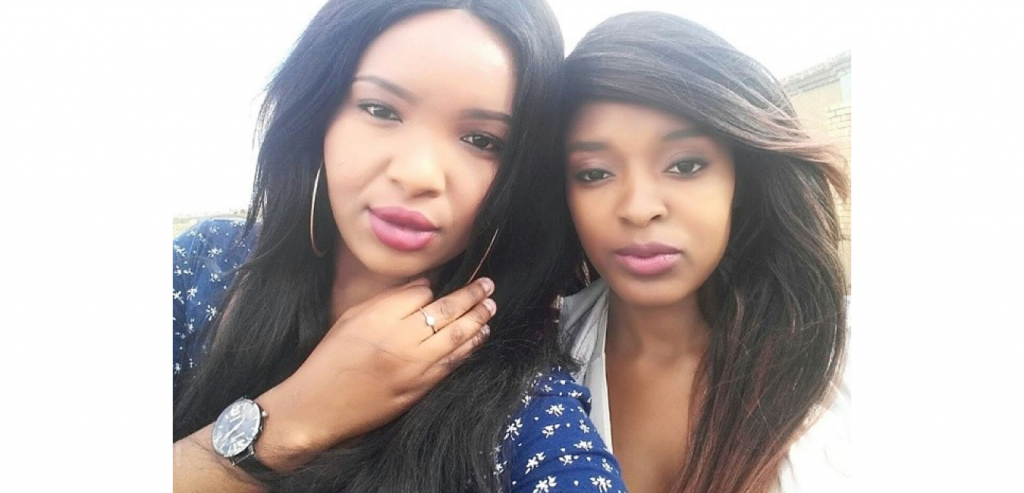One Friday night in May 2017, Popi Qwabe and Bongeka Phungula were shot dead and their bodies dumped by the side of the road in Johannesburg. At some point that evening, the pair hailed a minibus taxi and were not heard from again. Following a frantic search at hospitals and police stations, the horrific truth was discovered. Full forensic evidence reports have never been released and the police investigation that followed was, according to the family, riddled with mistakes. They may also have been raped before they were killed. The families claim the police did not check for fingerprints and that the phones belonging to the two girls were never traced. Two suspects who had been apprehended in connection with their deaths were later released and the case was struck off the roll.
In the three years since the murders, no thorough investigation has taken place, leaving the families in the dark with no hope of justice being served. Amnesty International is demanding justice by calling on the Minister of Police, Bheki Cele, to launch a thorough, fair and impartial investigation into the deaths of Popi and Bongeka. Their case was put forward by Amnesty International South Africa to be included in Amnesty’s global Write for Rights Campaign, which is the world’s biggest annual human rights event to demand justice for victims of human rights violations. Towards the end of every year, hundreds of thousands of Amnesty members and supporters from around the world write letters to governments demanding action for certain individuals whose human rights have been abused. The campaign is a global moment that unites activists all over the world.
This campaign is not only about seeking justice for Popi and Bongeka, but for all victims of gender-based violence (GBV) and femicide in South Africa. The rates of GBV in the country are a human rights crisis, with a femicide rate five times higher than the global average. In June 2020 alone, 29 women were killed. In the past year, almost 144 sexual offences were committed each day, most of these being rape, resulting in a 4.6% increase in sexual offences. COVID-19 lockdown measures forced people indoors where violence worsened, with gender-based violence hotlines receiving three times the rate of calls compared to prior to the pandemic.
The government’s newly launched National Strategic Plan on GBV and Femicide is a step in the right direction. However, operationalising these commitments requires that every level of government takes GBV and femicide seriously by challenging harmful gender norms and discriminatory stereotypes about victims and survivors. It also requires an effective criminal justice system, which prioritizes ensuring victims of GBV are able to access justice.
In addition to calling for justice for Popi and Bongeka, the goal of the campaign is for the government to ensure that police officers are properly trained to sensitively and objectively investigate incidents of GBV and femicide. This includes thorough training in the gathering and processing of evidence, thereby ensuring that cases can be successfully prosecuted.
Police officers are not trained to attend to matters of GBV and femicide and are ill-equipped to provide victims with the deserved information and support to process both their claims and trauma. Survivors are often victimised and harassed by police officers when reporting crimes of GBV and in some cases, they are exposed to further assault (as demonstrated in the recent SAPS crime statistics that documents 9614 cases of sexual assault as a result of police action). Furthermore, a recent report by the Civilian Secretariat for Police Service to Parliament indicates that “only 21 police stations were fully compliant with the provisions of the Domestic Violence Act, and only 66% of police stations had functional and resourced victim friendly rooms.”
With discouragingly low prosecution rates for sexual offences, as recorded by the South African Law Commission, (5% of rape of an adult and 9% of rape of a minor) there is an urgent need to bolster capacity and address impunity.
Amnesty’s calls are especially urgent as COVID-19 related measures have created additional barriers within the criminal justice system that need to remedied, including the postponement or withdrawal of cases due to several magistrate’s courts and the justice department’s head office having to close due to positive COVID-19 cases.
Amnesty International is demanding justice for Popi, Bongeka and their families. It is time to end the war against women in South Africa and demand justice for those whose lives have been lost or impacted.
The voices of Popi and Bongeka have been brutally silenced but you can use your voice and your pen to demand justice for them and their families. Visit Amnesty.org.za to join our Write for Rights campaign and write a letter to Minister Bheki Cele demanding a thorough investigation of Popi and Bongeka’s case leading to a successful prosecution. It’s time to speak up and demand justice.
Follow Amnesty International South Africa on Twitter, Instagram, Facebook and TikTok.


